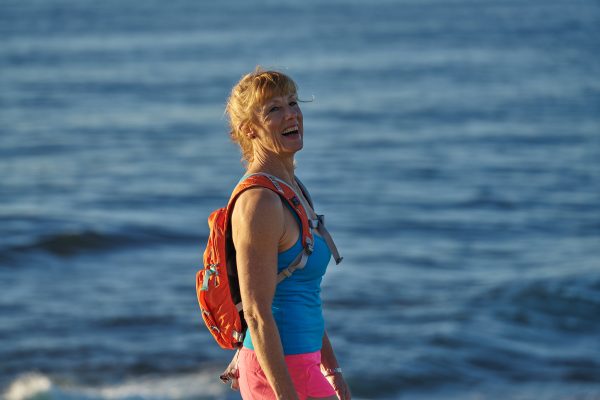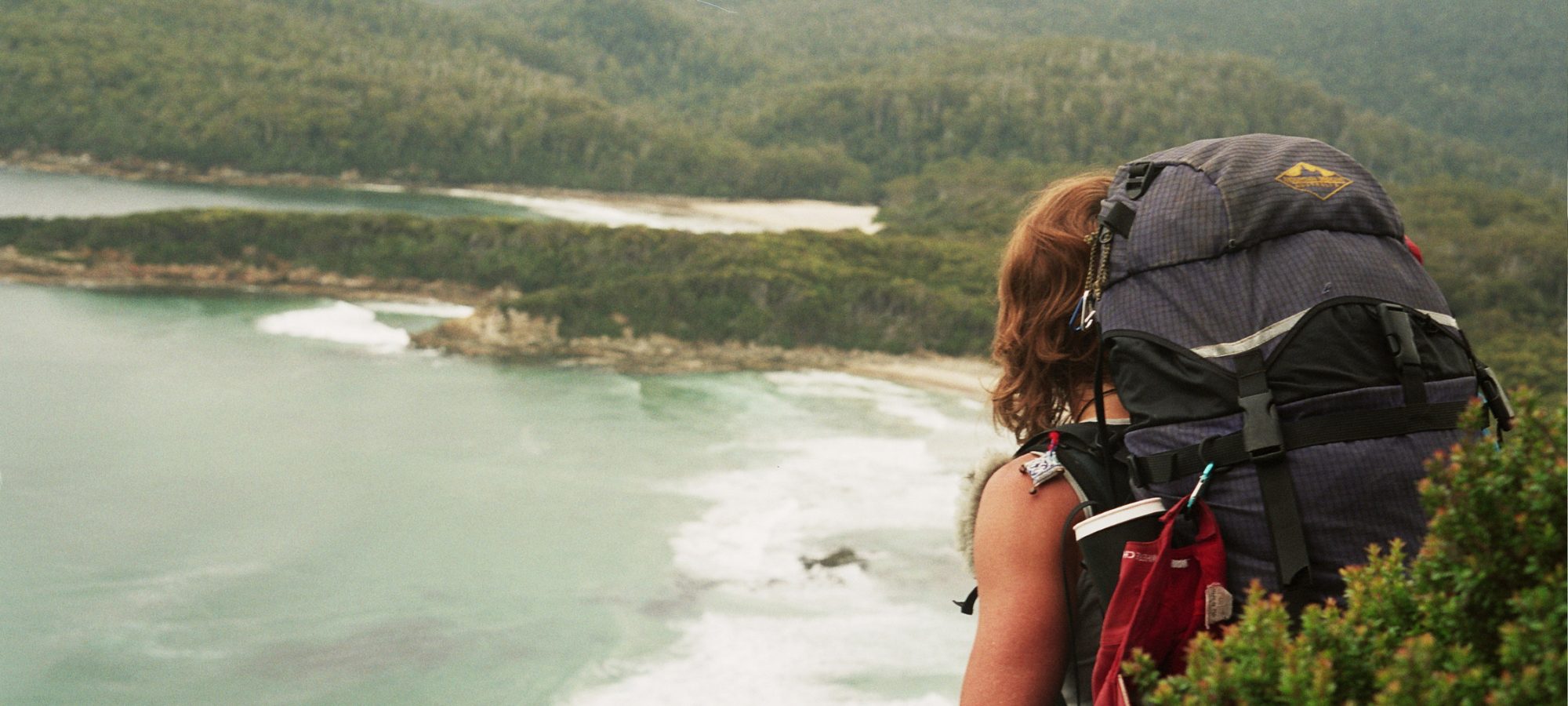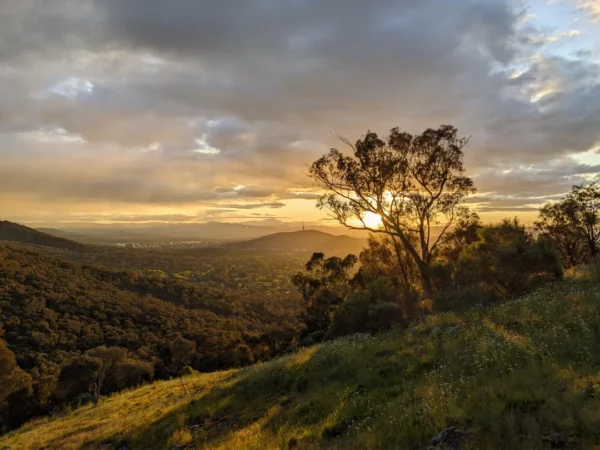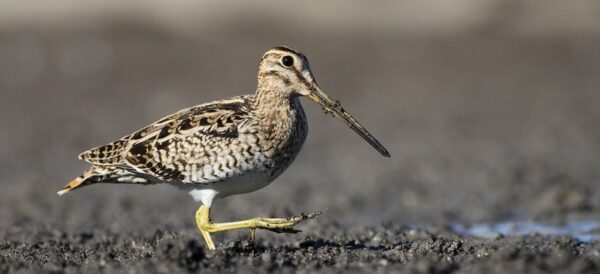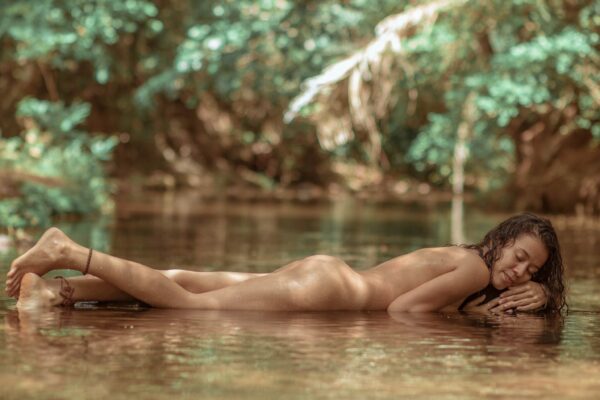As the daughter of a Czechoslovakian World War II refugee, I grew up refusing, reusing, repairing, repurposing, restoring, rotting and recycling.
My dad fixed everything that broke, fashioning new appliances and utensils from scraps he’d collected; a broken screwdriver handle became a new frypan handle, a hole in a bucket became drainage for a pot plant. We even had an eco- toilet to save water and turn our poo to plant food.
Nothing was wasted.
From our quarter-acre block in the outer suburbs of Canberra, we made fresh, home-cooked meals from home-grown veggies. Made preserves from our multi-fruit orchard, and collected fresh eggs from our pet chickens. In addition to nourishing our garden, our towering compost heap broke my fall when I dismounted from my homemade gymnastics beam and our pet dogs ate our leftovers for dinner.
Little did I know I would one day have to relearn these childhood habits to help alleviate the ongoing grief I experienced when I first became fully aware of the catastrophe which is global heating.
It was Al Gore’s An Inconvenient Truth that first alerted me to what might be a problem. But as we now know, the Exxon-led global PR campaign convinced us all we had nothing to worry about.
Around the same time, a friend from the federal Department of the Environment warned me against buying a waterfront unit, saying the projections for the rising oceans could make it uninhabitable within a couple of decades.
But I didn’t listen.
In fact, despite my millennial children’s warnings, I failed to properly absorb the magnitude of the issue, and my potential role in it, until the Black Summer of 2019-2020.
As I watched the mega fires engulf the coast and mountains of NSW and Victoria, destroying millions of hectares of national parks, burning over a billion animals alive, and turning our bright blue sky into an eery red grey smog for months, I began to feel utterly helpless and hopeless.
For the first time in my life, I experienced a surprising deep sadness that I just couldn’t shake. A melancholy had crept into my being and refused to budge.
We rose, day after day, to more devastating news. More fires killing more trees, koalas, kangaroos, echidnas, wombats, lizards, bilbies, numbats, and possums. My sister’s backyard bees died from the extreme heat, despite her best efforts to save them.
As part of the generation that is leading climate change – the Baby Boomers – it is hard not to feel guilty.
Guilty for takeaway coffee cups, using gladwrap, and buying raspberries in plastic containers. Guilty for driving a petrol car, not recycling correctly, and not composting. Guilty for eating animals and using gas appliances.
Guilty for unwittingly changing the climate by leading such a carefree life.
I am part of the generation responsible for unprecedented burning of fossil fuels, destroying habitats, driving plants and animals to extinction, and not giving a shit about the consequences in pursuit of pleasure and play.
But guilt won’t fix the problem. And I knew – both for the planet and my own mental health – I needed to start doing some things that would actually make a difference.
So I started taking public transport to climate protests, riding my bike to work, joining activist groups, signing petitions, donating to climate causes and funding Ecologi tree planting and CO2 reducing programs.
I consulted Natalie Isaacs, founder of women’s climate change movement, One Million Women, who said the single most powerful thing a woman can do is to move her superannuation into an ethical fund. So I switched to Australian Ethical.
And I got an electric car.
Gradually my grief began to subside.
But my hope didn’t return until recently when the climate activists and the women of Australia, lead by the “teal independents”, swept our climate denying government from power. For the first time in three years, I woke up feeling optimistic about the future.
But there is still one significant thing left for me to tackle. One wildly unsustainable practice we all love to do, that I’m struggling to give up.
It’s getting into a fossil fuel guzzling plane and flying across the world to explore remote mountains, rivers, valleys, cliffs, coasts and wilderness areas. It’s adventure travel.
Adventure travel has been my passion for twenty years – it is my elixir of youth. It pushes me out of my comfort zone. It gives me that essential “something to look forward to” that motivates me to exercise, eat healthy and prioritise my self-care.
But I knew I needed to work out how to travel in a way that didn’t make matters worse.
According to Sue Badyari, CEO of global eco-tour company World Expeditions, there’s lots we can do without giving up on our big hairy audacious goals. She recommends active travel such as hiking, cycling, kayaking, walking, mountaineering, to make your adventuring 100% carbon emission free.
Hiking practices such as Leave No Trace have been part of the Wild Women philosophy for years. World Expedition trips also support regenerative programs that develop local projects and those that “respect animals in their wild habitat, looking from afar and minimising any disturbance to them,” says Badyari.
For our Aussie Wild Women keen to avoid the impact of long-haul flights, Australia has the best natural playgrounds and incredible scenery to explore. Tasmania, The Kimberly, Central Australia and Far North Queensland all have world-class hikes and natural wilderness you’ll love.
Other ways to reduce our travel footprint is to choose green transport. These can include cycling, walking, e-bikes, sailing and public transport, support carbon offsetting programs, select eco-friendly tours (do your research to avoid greenwashing), choose reef safe or avoid sunscreen when swimming in wilderness areas (cover up instead!).
And, Badyari adds, check your travel company is Eco Certified, Climate Action Certified and Respecting Culture Certified.
If you’re feeling guilty about travelling, use your guilt as fuel to motivate yourself to travel, and live, more sustainably.


